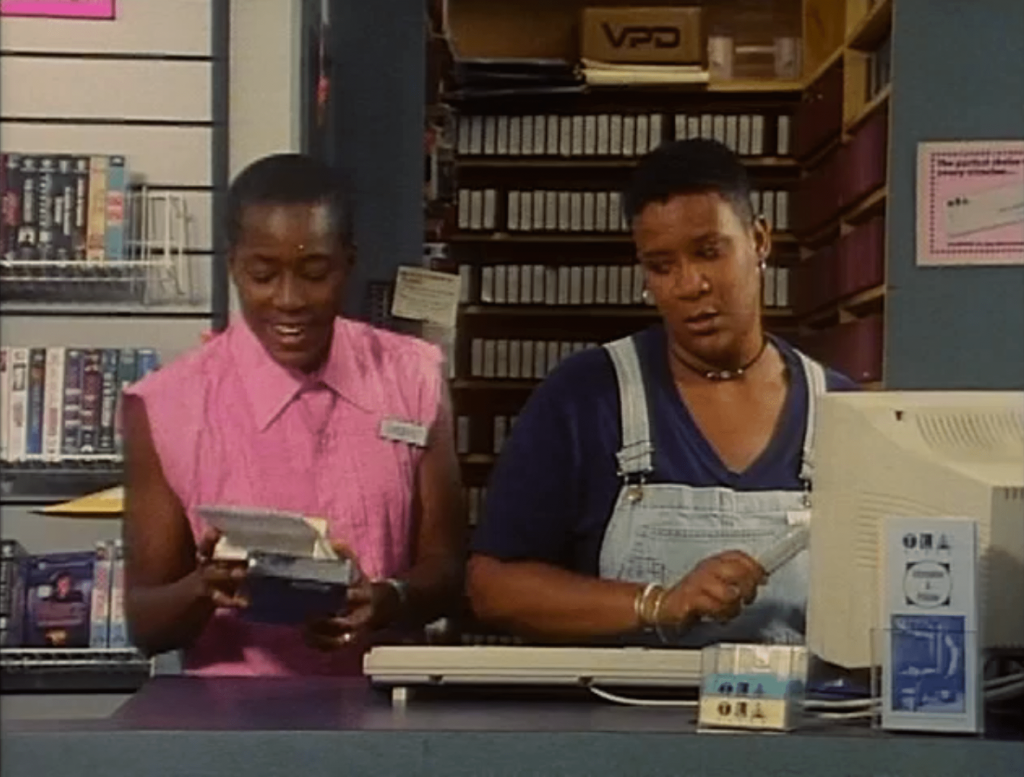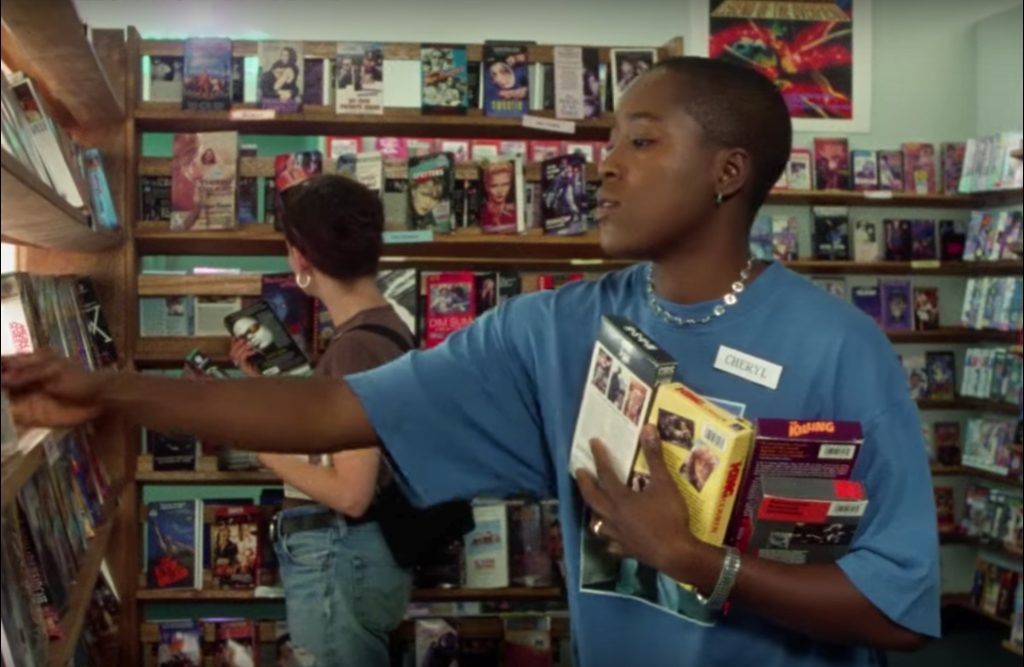The Watermelon Woman (USA 1996, Cheryl Dunye)
USA 1996, D: Cheryl Dunye, A: Cheryl Dunye, Guinevere Turner, Valarie Walker, Cheryl Clarke, Sarah Schulman, Camille Paglia, Brian Freeman, 90′, Englisch version, DCP
Philadelphia in the 1990s. Cheryl and Tamara are part of the city’s black lesbian community and earn their money in a video store. Meanwhile, Cheryl tries to get started as a filmmaker and begins shooting a documentary. Having set her mind on making a film about the attractive “Watermelon Woman” – a supporting actress in many flicks from the 1930s and 40s, to be found only under this name in the closing credits – she starts her research. Spheres begin to intertwine increasingly: alongside the mainplot relating to Cheryl’s love life and friendships, pseudo-documental interviews reveal more and more about the so-called “Watermelon Woman“, whose life has some parallels in store with the protagonist’s. Dunye’s film meets fictive documentary with a fictional film atmosphere and creates an amusing and non-conformally enacted political inventory of the multilayered connection of sexuality, class and skin colour.
The fictional character behind “Watermelon Woman“ was specifiically created for the production of the film by Cheryl Dunye and Zoe Leonard, including an accompanying photographic archive of the invented Fae Richards, an Afro-American actress who lived in the early 20th century and was known for her commitment in the civil rights movement. Dunye ascribes her fabrication of a life story to the shortcoming of information in real life: “The Watermelon Woman came from the real lack of any information about the lesbian and film history of African-American women. Since it wasn’t happening, I invented it.” (Cheryl Dunye).
19 April, 8 pm – Schaubühne Lindenfels – € 6,5 (5,5 red.)
On the same day at 7 pm, there will be a lecture by Natascha Frankenberger at Schaubühne Lindenfels dealing with working methods of Dunye’s and Leonard’s project besides other examples and aspects of queer counter-archives and activist visualization of marginalized artists and their ways of living.
Trailer








